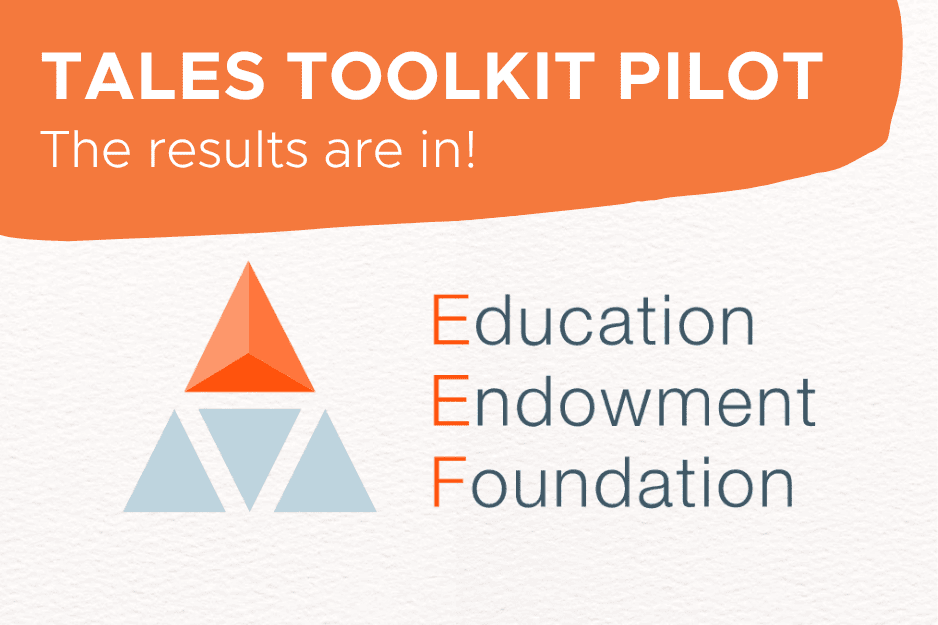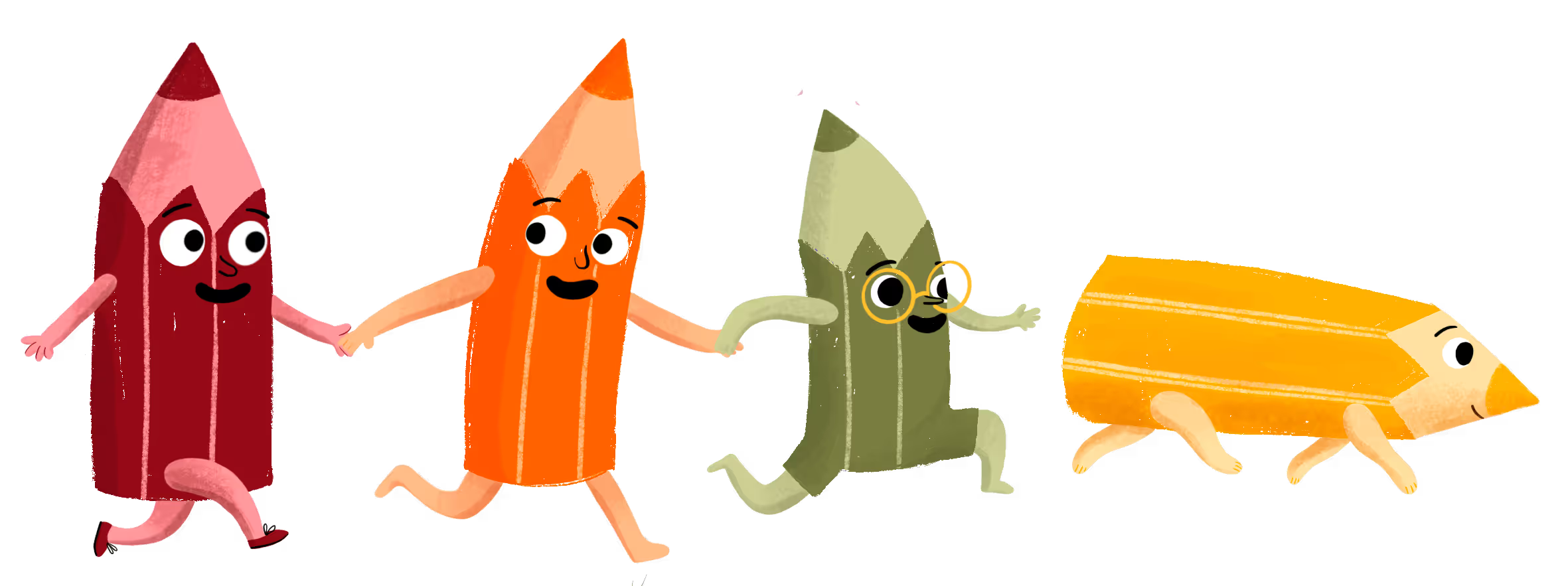SEMH Unit at The Place at Arden
Anne Oakley heads an SEMH unit in Norfolk and in honour of Neurodiversity Celebration Week, she was gracious enough to share her experience with Tales Toolkit in her setting.
Introducing the Place at Arden
I lead one of Norfolk County Council’s specialist units for 5 -7 year olds who have social and emotional mental health (SEMH) difficulties. Many of the children have suffered early life trauma and very sadly, continue to live in very complex environments. Other children have delays and difficulties managing their big emotions, responses and actions. All our children find the expectations and interactions of the busy classroom environment overwhelming and their fear driven responses have very often led to social isolation, disengagement from learning and exclusion before the age of seven years.

The Place is an acronym for, Playful Learning with Acceptance, Curiosity and Empathy, which is our philosophy and our approach. We have two classes to support a maximum of 16 children. I have an amazing team and it is a very special, unique place.
Local schools refer children to us for up to four terms. We aim to stabilise their stress response and provide bespoke strategies, enabling them to reintegrate back into their mainstream school. When they first arrive, all the children have huge blocks of rage, fear and panic. Fundamentally, we help them build trust in adults, help them get along together, allow them to experience much needed joy and success and re-engage them in irresistible learning.
We have been open for three years now and have seen children make huge progress, the majority returning to their mainstream schools successfully. We have developed our own bespoke curriculum, prioritising self regulation and filling many unmet developmental needs, learning gaps and learning differences.
How Tales Toolkit became part of our story
We gradually became aware that without exception, all the children coming to The Place have specific difficulties, delays and anxiety around pen and paper tasks, which appears to result in significant amounts of stress in school. One of my teachers had used Tales Toolkit in her previous mainstream reception class. She decided to introduce this to our children and we have been genuinely delighted with their progress.
“She decided to introduce [Tales Toolkit] to our children and we have been genuinely delighted with their progress.”QUOTE!!!
Children who arrived in The Place, angry, demand avoidant, having rarely ever taken part in a literacy session; too scared to pick up a pencil to draw or record in any way, found the contents of the Tales Toolkit bags irresistibly intriguing! It continues to be a regular group session, which we know children will consistently and enthusiastically engage in.
The visual symbols support our children’s working memory difficulties and they very quickly remember the story structure, eager to impress grown-ups with their exuberant, problem solving, storytelling.
.JPG)
Our Tales Toolkit sessions are a time when children who feel anxious in relationships, feel safe and confident to engage and interact with trusted grown ups, knowing they will see success and mutual joy.
Our Tales Toolkit sessions are a time when children who feel anxious in relationships, feel safe and confident to engage and interact with trusted grown ups, knowing they will see success and mutual joy.
Anne Oakley, SEMH Base Lead
Over time, we notice that the consistent structure enables children to bravely attempt their own drawings, gradually adding their own marks and finally, words.
Embedding Tales Toolkit - How it fits into our philosophy
This academic year, as a team, we have thoroughly enjoyed enhancing our knowledge and skills through the excellent online Tales Toolkit training sessions, which completely reflects our philosophy. Despite the fact that our present cohort are predominantly Year 1 children, the content of all the training is still entirely relevant to their stage of development and our play based, storytelling curriculum. The training has enabled us to incorporate Tales Toolkit into our continuous provision. We now have Tales Toolkit corners in both classrooms where children have the resources and symbols to use in their play. An adult sometimes scribes their story or films them in action, which is the ultimate motivation!
.JPG)
Likewise, the Tales Toolkit training mirrors our belief that our children are missing the roots of The Communication Tree – attention and listening, play and social skills. We know that many of our children have not lived alongside consistent quality interactions, early physical experiences or collaborative play. As a team, we now therefore ensure we build in lots of opportunities when we join our children in their play, or their interests, modelling quality interactions for extended conversations.
.JPG)
Initially, some of our children find it hard to come together as a group and to be able to focus on a storybook. We help to grow their attention, their storytelling parts and their confidence by using the Tales Toolkit resources in their play and in one to one sessions. All our children have the most amazing imaginations and they delight in these mutually fun individual sessions. We also use individual sessions to support children if we notice they are unsure of the meaning of any of the specific symbols. For example, some of our children have limited experiences of different places and environments (other than those they see in their video games). Alongside story books, in role-play or construction, we use the Tales Toolkit ‘Settings’ symbol to help children build and create many different settings, whether this is a magical island, under the sea, a pirate’s ship, a dolls house, café or hospital.
Transferable Social Skills - Problem Solving in Play
Once our children understand the format, it is not long before they start transferring their Tales Toolkit skills. We notice that they can quickly identify the problem when we listen to new or traditional stories and when prompted, they happily start creating an alternative ending or even change the entire plot!
Additionally, role-playing with others is difficult when children have working memory difficulties and an unconscious need to follow their own agenda. The Tales Toolkit visual symbols help our children structure play and their day-to-day interactions too. Identifying a problem and indeed, working together to find an acceptable solution is a key social skill.
.JPG)
Tales Toolkit Spreading Across the County
Finally, Tales Toolkit has received a lot of interest from Norfolk County Council and referring schools who have been delighted to see the levels of engagement and progress children have made in literacy, during their time at The Place.
Tales Toolkit is helping us to magically, engage our children in learning, to fill many developmental gaps, as well as helping our children to heal from their anxiety around pencil and paper tasks. It is irresistible and joyful learning at its best!
It is irresistible and joyful learning at its best!
- Anne Oakley, SEMH Base Lead
Written by:
Anne Oakley
Social and Emotional Mental Health Base Lead
The Place at Arden
Based at Arden Grove Infant and Nursery School
Part of the Wensum Trust www.wensumtrust.org.uk








.jpg)




.jpg)











%20(1).jpg)
%20(1).jpg)
.jpg)






























.jpg)










